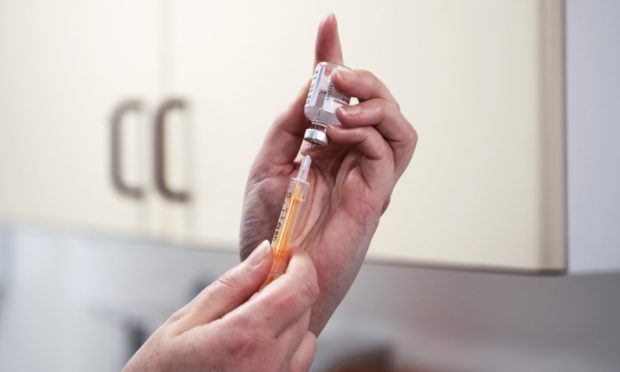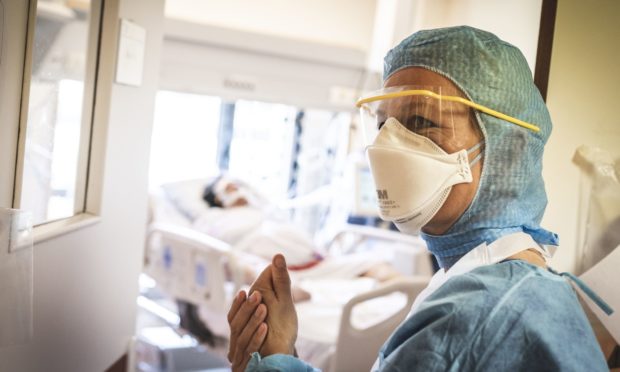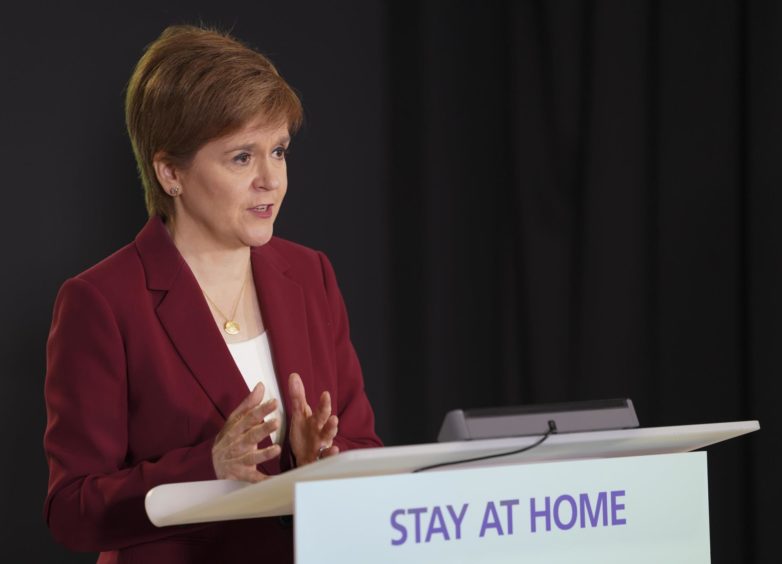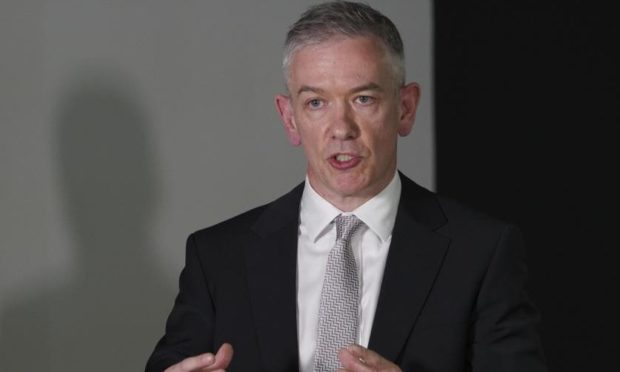Scotland could face an even tougher lockdown with Nicola Sturgeon considering fresh restrictions on construction, manufacturing and click-and- collect services.
The first minister revealed the Scottish Government’s anti-Covid measures are being reviewed as the nation recorded its highest number of daily coronavirus cases of the pandemic.
Giving her regular Covid briefing, Ms Sturgeon warned pressure on the NHS is increasing as she reported there had been 78 deaths in the past 24 hours, the highest daily death toll of the second wave.
Under the daily measurement of Covid cases, 2,649 were reported (11.3% of those tested), more than the previous high of 2,622 on Hogmanay.
Although daily deaths were at a record level for the second wave, the figure had not quite reached the high of 83 experienced in the early stages of the pandemic.
But Ms Sturgeon said the mounting number of cases is putting the NHS under “severe and increasing pressure”.
In an attempt to slow the spread of the virus, Ms Sturgeon signalled that further action may have to be taken as she repeated her pleas for people to stay at home and reduce their social contact.
If we think, as government, we need to go further in terms of the regulation and the legal restrictions, we will do that because we have to cut interactions sufficiently to stop this virus spreading.”
Nicola Sturgeon
“I need to be really blunt about this – for this lockdown to be as effective as we need it to be, we must radically reduce the number of interactions we are having,” the first minister said.
“If we need to require more non-essential activity to close in order to achieve this, we will have to do that. That’s a matter of ongoing review by the Scottish Government right now.”
Tough decisions on further lockdown
When asked what may have to be closed, the first minister mentioned non-essential manufacturing, non-essential construction and click-and-collect services – noting that the last two items had been restricted in the Republic of Ireland.
Ms Sturgeon noted that many businesses had made great efforts since the last lockdown to make their work safer, but said she would not hesitate to make “tough” decisions if need be.
“If we think, as government, we need to go further in terms of the regulation and the legal restrictions, we will do that because we have to cut interactions sufficiently to stop this virus spreading,” Ms Sturgeon said.
“So if it takes more tough decisions by me to stand here, or in parliament, and communicate then that’s what I will do, because we see from case numbers, death numbers, the pressure on our health service, we can’t allow this virus to run away from us. The consequences of that are just too great.”
Vaccination is key
Ms Sturgeon said vaccination held the key to beating the virus and said more than half of care home residents had been given the first of their two doses.
So far 113,459 people have received their first dose of the Pfizer vaccine, with the Oxford/AstraZeneca inoculation coming on stream on Monday.
From the beginning of next week more than 1,100 vaccination sites will be operational across Scotland. They will mainly be GP practices and community vaccination centres.

The additional challenges facing the NHS at a time when it normally faces winter pressures was illustrated by the number of people in hospital with the virus rising to 1,467 – a figure the first minister said is “pretty close” to the number reached at the peak of the first wave.
Ms Sturgeon said: “Every single person who gets infected with this virus is someone who might need hospital care in future – the more all of us stay at home and reduce the opportunities for the virus to spread, the more all of us help the NHS to cope.
“Stay at home, protect the NHS, save lives. That is now just as important as it was last March and I ask everybody to take it just as seriously as all of us did back then.”
Chief Medical Officer Dr Gregor Smith warned the pressure was having an impact on NHS staff.
“I have colleagues right across community and hospital-based care that turn up every day, and I know how hard they are working just now and how tired they are,” Dr Smith said.
“They have had not just a couple of weeks of hard work behind them, but actually this has been going on for months now.
“When I speak to them I recognise their unease and their anxiety at times about what they are faced with ahead, because there is some uncertainty for them when they turn up at work – just how busy they are going to be and just exactly what they are going to be faced with over the day.
“We should never underestimate the impact that has on individuals.”


